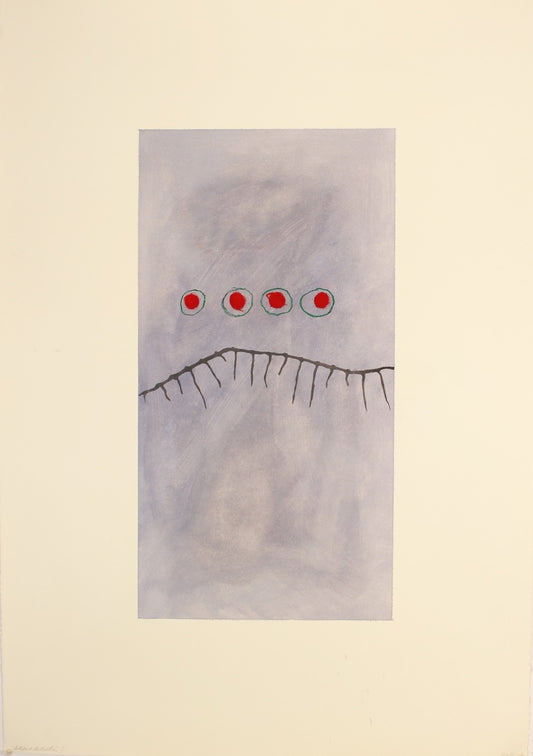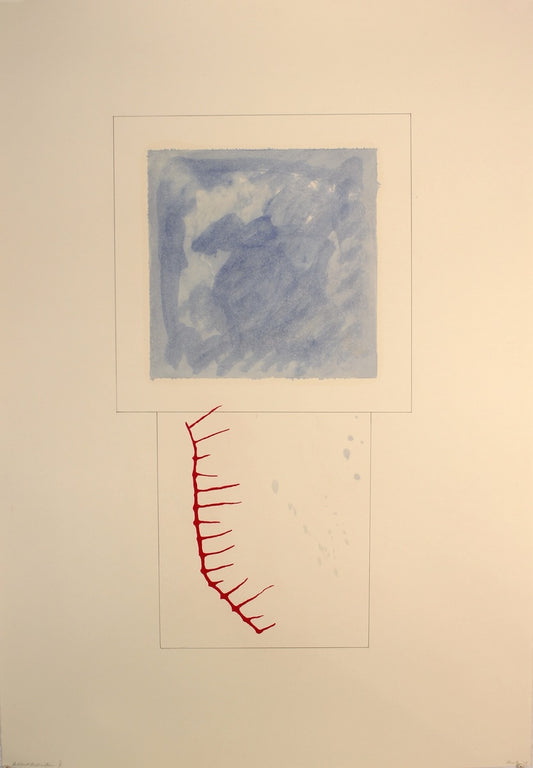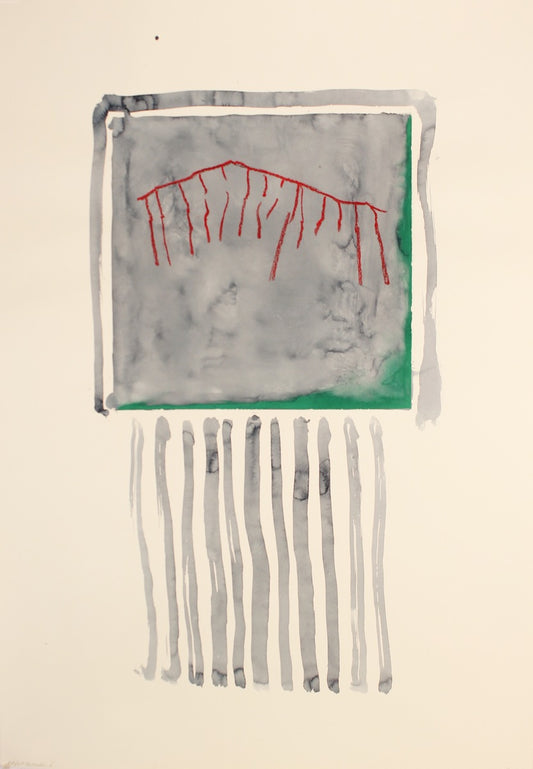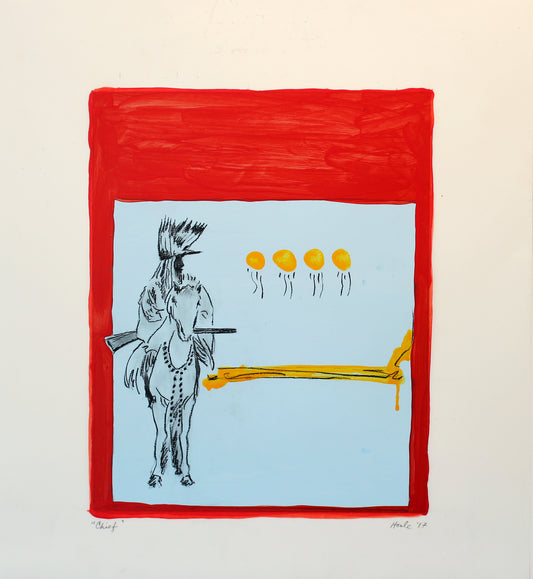Robert Houle was one of the 2015 Winners of the Governor General’s Awards in Visual and Media Arts. Houle is an artist, curator, writer and educator currently based in Toronto, and is from Sandy Bay First Nation. He studied art history at the University of Manitoba and fine arts at McGill University and the International Summer Academy of Fine Arts in Salzburg, Austria.
Houle’s work “has indelibly shaped the discourse and practice of Aboriginal and Western art histories, in Canada and internationally…. Working from his knowledge of Anishinaabe conventions of abstraction embedded in such arts as quillwork, and from his research into Western art history, Houle has forged a new, and distinctly Indigenous, visual language, informed by complex currents of Aboriginal traditionalism, European realism, and American modernism, and shaped by autobiography, historical events, and contemporary politics. For forty years, and with great courage and dignity, Robert Houle has eloquently articulated Anishinaabe history, which, in his words, “speaks of healing from the ravenous gaze of pending disappearance.”(Barry Ace, visual artist (Odawa) and Sandra Dyck, Director, Carleton University Art Gallery (nominators), Governor General’s Awards.
Houle has been exhibiting since the early 1970’s and has a major national and international exhibition history. He has participated in several important international group exhibitions, including Recent Generations: Native American Art from 1950 to 1987, at the Heard Museum, Phoenix; Traveling Theory, at the Jordan National Gallery, Amman, Jordan; Notions of Conflict, at the Stedelijk Museum, Amsterdam; and Real Fictions: Four Canadian Artists, at the Museum of Contemporary Art, Sydney, Australia.
Robert Houle was the first curator of contemporary Indian art at the Canadian Museum of Civilization and has organized groundbreaking exhibitions. He has written essays on contemporary First Nations artists including Rebecca Belmore, Faye HeavyShield, Alex Janvier, and Norval Morrisseau. Houle teaches at OCAD, Toronto. He has been awarded the Janet Braide Memorial Award for Excellence in Canadian Art History (1993); the Toronto Arts Award for the Visual Arts (2001); the Eiteljorg Fellowship (2003); and the Canada Council International Residency Program for the Visual Arts in Paris (2006).
Houle’s work “has indelibly shaped the discourse and practice of Aboriginal and Western art histories, in Canada and internationally…. Working from his knowledge of Anishinaabe conventions of abstraction embedded in such arts as quillwork, and from his research into Western art history, Houle has forged a new, and distinctly Indigenous, visual language, informed by complex currents of Aboriginal traditionalism, European realism, and American modernism, and shaped by autobiography, historical events, and contemporary politics. For forty years, and with great courage and dignity, Robert Houle has eloquently articulated Anishinaabe history, which, in his words, “speaks of healing from the ravenous gaze of pending disappearance.”(Barry Ace, visual artist (Odawa) and Sandra Dyck, Director, Carleton University Art Gallery (nominators), Governor General’s Awards.
Houle has been exhibiting since the early 1970’s and has a major national and international exhibition history. He has participated in several important international group exhibitions, including Recent Generations: Native American Art from 1950 to 1987, at the Heard Museum, Phoenix; Traveling Theory, at the Jordan National Gallery, Amman, Jordan; Notions of Conflict, at the Stedelijk Museum, Amsterdam; and Real Fictions: Four Canadian Artists, at the Museum of Contemporary Art, Sydney, Australia.
Robert Houle was the first curator of contemporary Indian art at the Canadian Museum of Civilization and has organized groundbreaking exhibitions. He has written essays on contemporary First Nations artists including Rebecca Belmore, Faye HeavyShield, Alex Janvier, and Norval Morrisseau. Houle teaches at OCAD, Toronto. He has been awarded the Janet Braide Memorial Award for Excellence in Canadian Art History (1993); the Toronto Arts Award for the Visual Arts (2001); the Eiteljorg Fellowship (2003); and the Canada Council International Residency Program for the Visual Arts in Paris (2006).
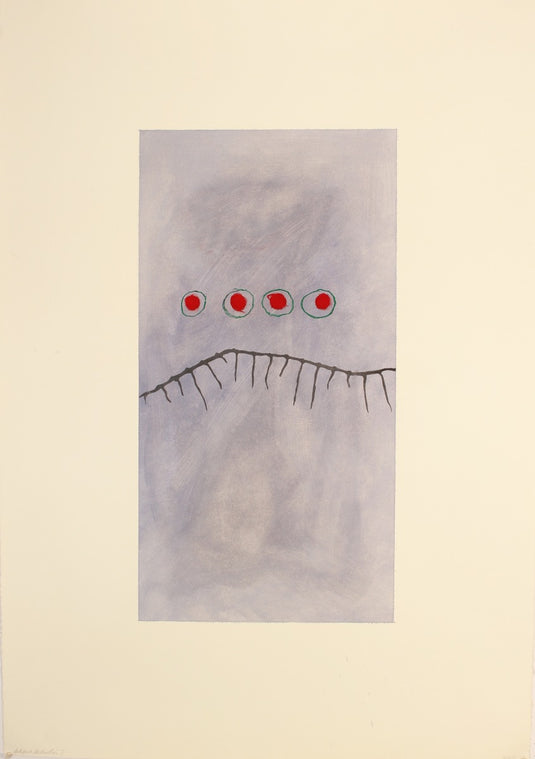 Robert Houle
Robert Houle
